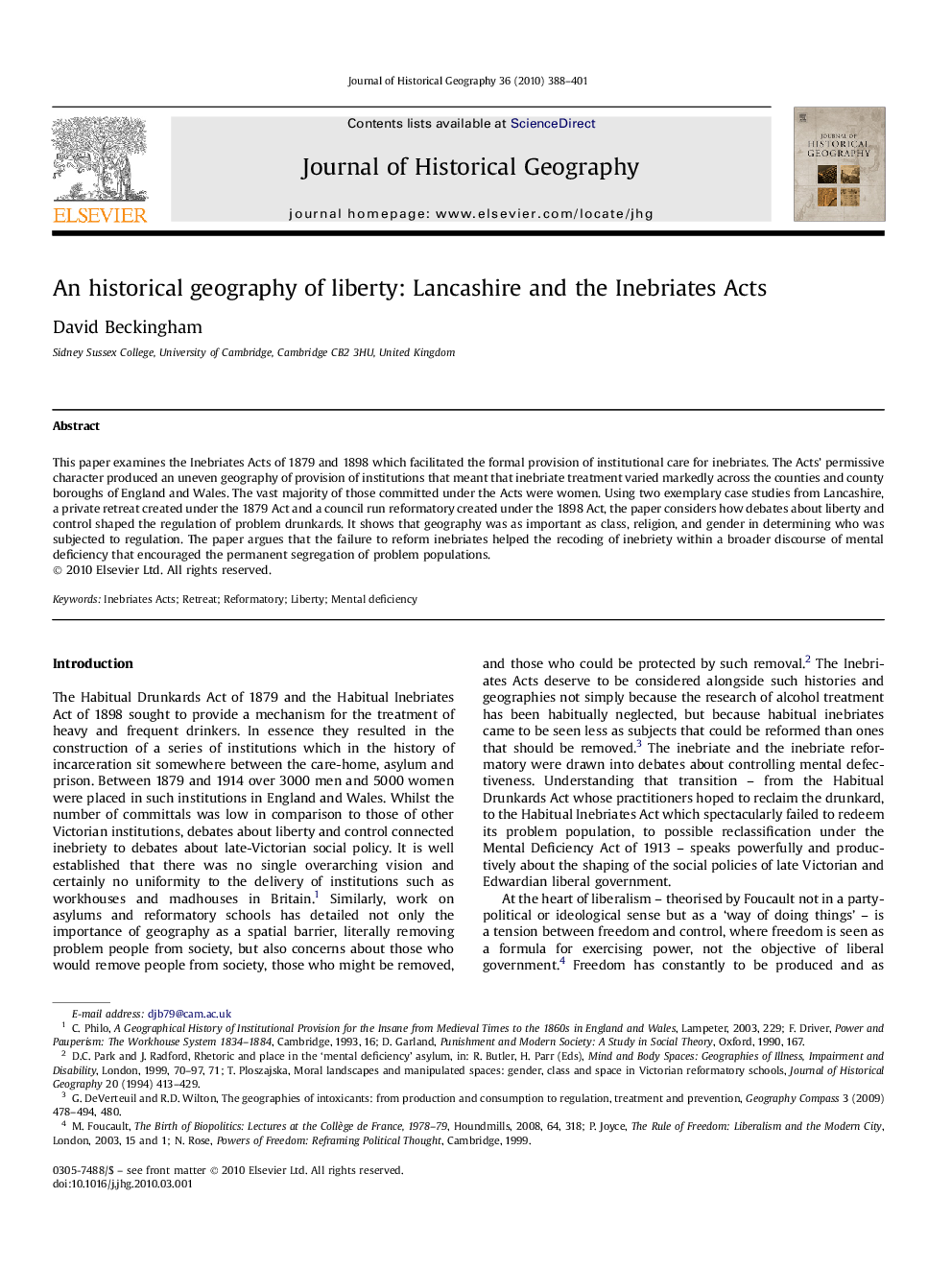| Article ID | Journal | Published Year | Pages | File Type |
|---|---|---|---|---|
| 1039162 | Journal of Historical Geography | 2010 | 14 Pages |
This paper examines the Inebriates Acts of 1879 and 1898 which facilitated the formal provision of institutional care for inebriates. The Acts' permissive character produced an uneven geography of provision of institutions that meant that inebriate treatment varied markedly across the counties and county boroughs of England and Wales. The vast majority of those committed under the Acts were women. Using two exemplary case studies from Lancashire, a private retreat created under the 1879 Act and a council run reformatory created under the 1898 Act, the paper considers how debates about liberty and control shaped the regulation of problem drunkards. It shows that geography was as important as class, religion, and gender in determining who was subjected to regulation. The paper argues that the failure to reform inebriates helped the recoding of inebriety within a broader discourse of mental deficiency that encouraged the permanent segregation of problem populations.
